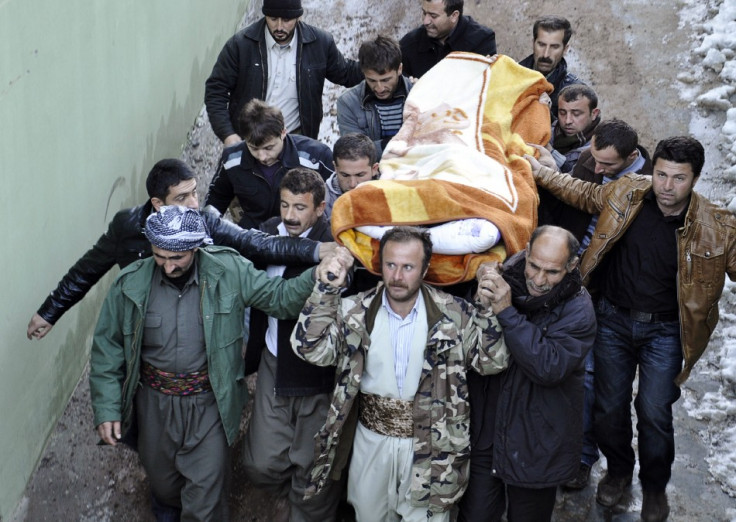Turkey Refuses to Apologise for Deadly Airstrike Against Kurds

The Turkish government has promised to compensate the families of 35 victims mistakenly killed in an airstrike but has refused to apologise for the incident.
Thirty-five smugglers were killed in southeast Turkey when they were mistaken for terrorists from the Kurdistan Workers' Party (PKK).
While the government has agreed to compensate the families of those killed in the operation, and has conceded that they were not PKK rebels, it remains steadfast in its refusal to apologise for their deaths and maintains that an ongoing investigation will clear it of any negligence.
Turkey's deputy prime minister, Bülent Arınç announced measures to "alleviate pain" felt by the families of those who died in the incident.
Opposition parties have accused the government of being responsible for the massacre of 35 civilians, who were killed in the airstrike near the village of Uludere.
The leader of the pro-Kurdish Peace and Democracy Party (BDP), Selahattin Demirtas, claimed that the killings were "clearly a massacre", according to the Hürriyet Daily News
The civilians, most of whom lived in the village of Ortasu, were reportedly smuggling petrol and food across the border to Iraq when they were spotted by unmanned aerial reconnaissance vehicles.
Prime Minister Recep Tayyip Erdogan's Justice and Development Party (AKP) admitted that the raid, carried out by F-16 fighter planes, was an "operational mistake".
The pilots are believed to have been told that the targets were possible PKK militants who had entered the country illegally.
Sezgin Tanrıkulu, deputy chairman of the opposition Republican People's Party (CHP), said that peaceful, non-militant Kurds living in the area were angered by the government's "dismissive attitude" towards the incident.
The prime minister is coming under increasing pressure over his government's policy of finding a military solution to the "Kurdish problem", namely, their pursuit of independence.
Murat Yetkin, a columnist for the paper, wrote that while there is a security dimension to the problem, as its origins are political, ethical, social and economic, security measures alone are insufficient to address it.
In the wake of the raid, the PKK is calling for a massive Kurdish uprising against the Turkish government.
The PKK is considered a terrorist organisation by Turkey, the European Union and the United States.
© Copyright IBTimes 2024. All rights reserved.









